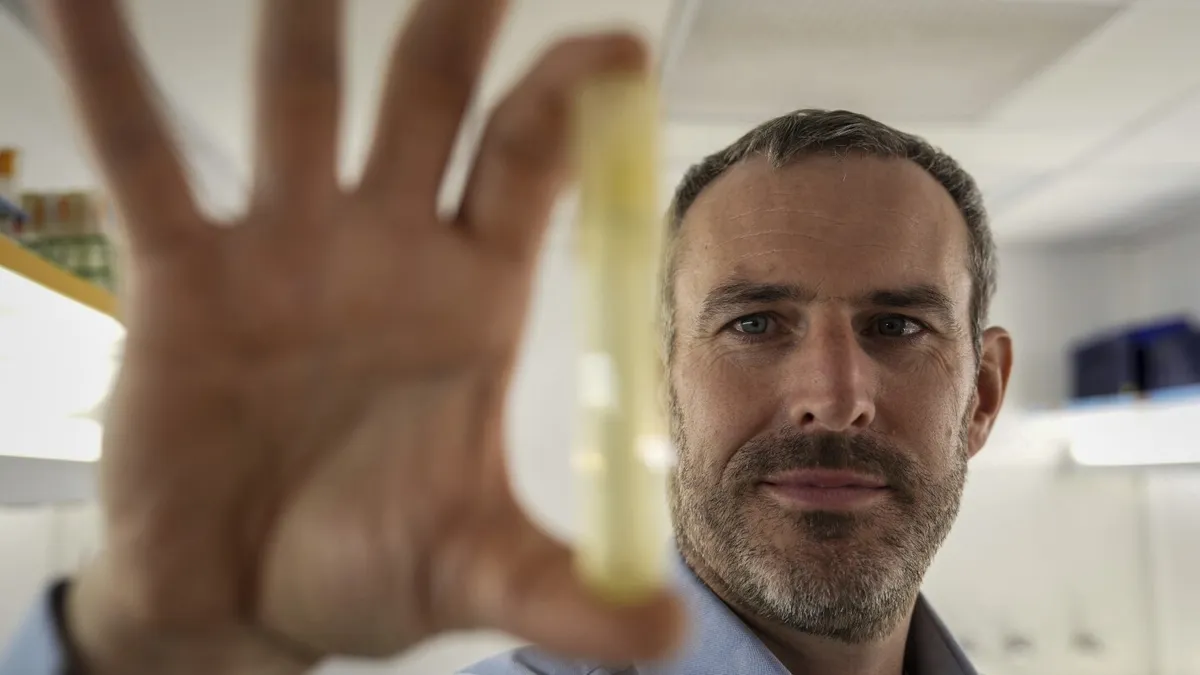
For decades, scientists have operated under the assumption that Prochlorococcus, the smallest and most abundant phytoplankton on Earth, would prosper in a warming world. However, groundbreaking new research suggests a troubling decline in this microscopic bacterium, which is essential for the marine food web and plays a crucial role in regulating the planet's climate. A recent study published in the journal Nature Microbiology indicates that Prochlorococcus populations could plummet by as much as half in tropical oceans over the next 75 years if sea surface temperatures exceed approximately 82 degrees Fahrenheit (27.8 degrees Celsius).
Current trends show that many tropical and subtropical sea surface temperatures are already above average, with projections indicating they may regularly surpass 86 degrees Fahrenheit (30 degrees Celsius) within the same time frame. “These are keystone species—very important ones,” stated François Ribalet, a research associate professor at the University of Washington’s School of Oceanography and the study’s lead author. “When a keystone species decreases in abundance, it always has consequences on ecology and biodiversity. The food web is going to change.”
Prochlorococcus occupies up to 75% of Earth’s sunlit surface waters and is responsible for producing about one-fifth of the planet’s oxygen through photosynthesis. More critically, these tiny organisms convert sunlight and carbon dioxide into food, forming the base of the marine ecosystem. “In the tropical ocean, nearly half of the food is produced by Prochlorococcus,” explained Ribalet. “Hundreds of species rely on these guys.”
While other forms of phytoplankton may migrate to fill the gap left by Prochlorococcus, Ribalet cautioned that they are not suitable substitutes. “Evolution has made this very specific interaction,” he added. “This is going to have an impact on this very unique system that has been established.”
The findings of this study challenge decades of belief that Prochlorococcus would thrive as ocean waters warmed, beliefs that were largely based on limited data from laboratory cultures. For this comprehensive study, Ribalet and his team collected water samples while traversing the Pacific Ocean over a decade, conducting over 100 research cruises—equivalent to six trips around the globe. They counted approximately 800 billion individual cells from samples taken at every kilometer.
In his lab at the University of Washington, Ribalet showcased the SeaFlow, a custom-built device equipped with tubes, wires, and a blue laser, designed to continuously pull in seawater for real-time microbe counting. “We have counted more Prochlorococcus than there are stars in the Milky Way,” he remarked.
Experts are expressing concern over the implications of these findings. Paul Berube, a research scientist at the Massachusetts Institute of Technology specializing in Prochlorococcus, described the breadth of data as “groundbreaking.” He emphasized that the results align with the microbe’s streamlined genome, which makes it less adaptable to rapid environmental changes. “They’re at the very base of the food web, and they feed everything else—the fish eat the things that eat the phytoplankton, and we eat the fish,” Berube noted. “When changes are made to the planet that influence these organisms, it’s going to have big consequences.”
To assess whether Prochlorococcus might evolve to endure hotter conditions, Ribalet’s team modeled a hypothetical heat-tolerant strain but concluded that such adaptations would not suffice to withstand the increasing temperatures if greenhouse gas emissions continue to rise. Ribalet stressed that the study’s projections are conservative and do not account for the additional pressures of plastic pollution or other ecological stressors. “We actually tried to put forth the best-case scenario,” he stated. “In reality, things may be worse.”
Steven Biller, an associate professor at Wellesley College, characterized the projected declines in Prochlorococcus as “scary but plausible.” He highlighted the importance of these tiny organisms, often overlooked, as part of the “invisible forests” of the ocean that are essential to human survival. “Half of all photosynthesis is happening in the oceans, and Prochlorococcus is a key component of that,” Biller remarked. “The magnitude of the potential impact is kind of striking.”
Ribalet, Biller, and Berube agree that while other microbes may provide some compensation, the broader risks to biodiversity and fisheries are significant. “We know what drives global warming. There is no debate among the scientific community,” Ribalet concluded. “We need to curb greenhouse gas emissions.” He hopes these findings will draw attention to tropical oceans, which could serve as natural laboratories for warming adaptations and as early warning signals for ecological collapse. “For the first time, I want to be wrong. I would love to be wrong,” Ribalet said. “But these are data-driven results.”
___ Follow Annika Hammerschlag on Instagram @ahammergram. ___